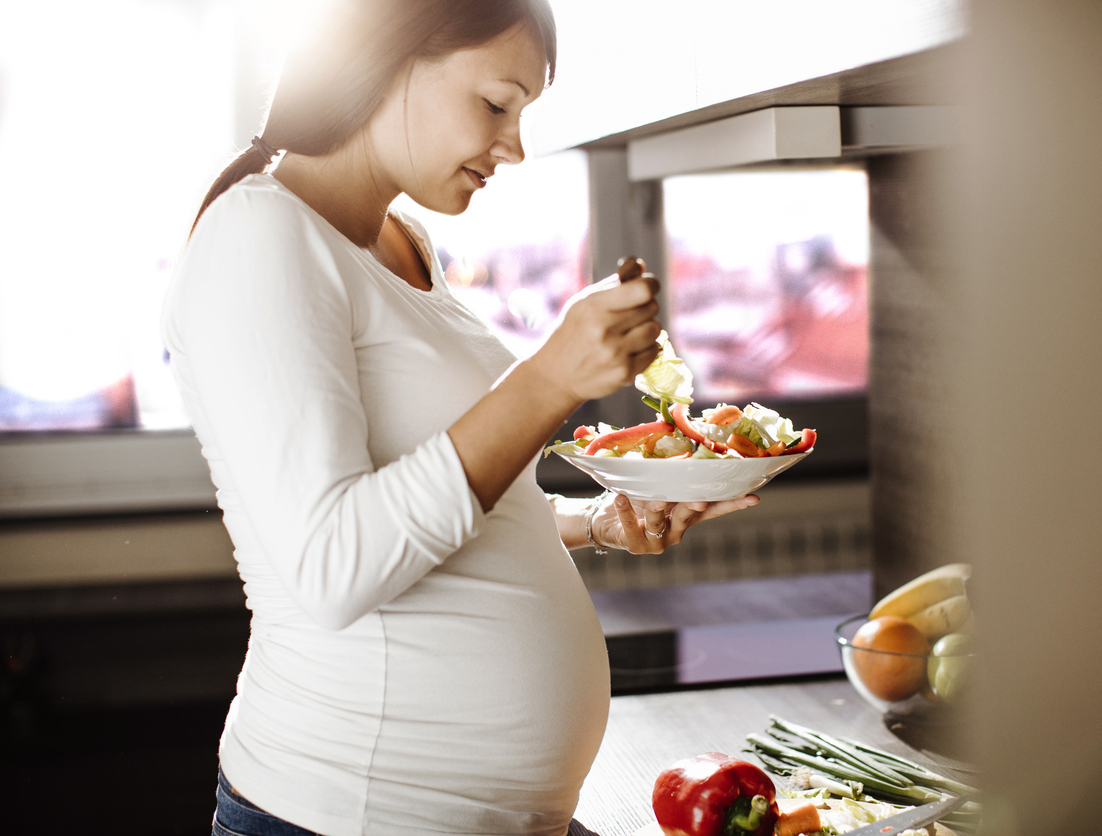Maternal Nutrition has a significant role in a healthy pregnancy journey for women. During the pregnancy phase, the mother goes through many physical challenges & essential nutrients help to cope with them. Some of the key nutrients are water, proteins, fats, minerals, vitamins, and carbohydrates. Doctors suggest a separate diet chart for women to emphasize more on pregnancy health.
What a mother eats in a day affects the growth & development of the fetus! Adopting a healthy lifestyle with a nutritious diet pattern may result in fewer complications during the pregnancy cycle. Getting consultation & nutrition advice from any reputed gynecologist or expert is advisable.
Nutrient Requirement During Pregnancy
Most gynecologists suggest new mothers be specific with their nutrient intake. Any deficiency may affect the growth & development of the fetus. It is crucial to track down the trimester progress & regular check-ups to detect any essential nutrient deficiency.
- Iron: It is one of the most important nutrients for healthy pregnancy care. Babies have enough oxygen intake as pregnant women start consuming iron-rich diets like beans & meat products. Also, vitamin C helps the body absorb more iron so that the mother can consume citrus fruits like oranges & strawberries.
- Folate or Folic Acid: It is an essential nutrient to prevent congenital disabilities for babies targeting their brain & spine. Some folic acid-enriched foods recommended for pregnant women are peas, beans, citrus fruits, green leafy vegetables, cereals, rice, and bread.
- Calcium: It is one of the common nutrients known for providing strength & building bones & teeth. Some recommended calcium-enriched food items are dairy products, kale, broccoli, juices, and cereals.
- Vitamin D: Like calcium nutrients, it also contains elements to make teeth & bones grow stronger. Some good sources of vitamin D for pregnant women are fatty fish, fortified milk & orange juice.
- DHA or Docosahexaenoic Acid: It is also known by another term as omega-3 fatty acid that is essential for the development of a baby’s brain & eyes.
How Much a Pregnant Woman Should Eat?
In general terms, women are recommended to consume at least 2000 calories per day during the pregnancy months. However, every pregnancy is different & gynecologists will assess the calorie requirements using the nutrition chart.
Consult a gynecologist to track the weight gain or loss before, during, and after the pregnancy. It helps with assessing weight management to ensure a healthy pregnancy. Being overweight can be a challenge for normal deliveries; it is advised to consult a doctor for a regular checkup.
Avoid Oily and Junk Food Consumption
Everyone should avoid junk food; however, pregnant women are more vulnerable to developing problems due to the intake of junk. It has an impact on the growth & development of a baby by disrupting cholesterol, hormonal levels, and others. It is essential to emphasize the avoidance of particular food items and dietary intake. Pregnant women should completely avoid wheat flour, oily, junk & unhealthy diets to maintain their healthy pregnancy.
As a pregnant woman carrying a baby, she cannot do a heavy workout to digest the food. A simple & easy exercise routine designed for pregnancy helps women get rid of physical challenges. It is beneficial to balance healthy diets, workout & exercise, and avoid unhealthy food during pregnancy.
Calories & Dietary Recommendations
The dietary recommendation depends on the women’s personal health conditions & weight. In general terms, a balanced diet should comprise fruits, protein, whole grains, and vegetables.
It is advisable to consult your gynecologist to get the best recommendation for diets. To maintain normal-weight of a pregnant woman, doctors usually suggest:
- 1st Trimester: 1800 calories per day
- 2nd Trimester: 2200 calories per day
- 3rd Trimester: 2400 calories per day
However, it is important to note that these calorie requirements may differ as per women’s weight & other health factors.
Prenatal Health Vitamins
Pregnant women need natural nutrients from food elements. However, if doctors & gynecologists feel the requirement of prenatal vitamin supplements, they will advise you to take it. They write in the prescription for mothers to fill any deficiency gaps with the help of effective supplements.
One of the common nutrient deficiencies witnessed among pregnant women is folic acid. The supplements can be taken as advised before the pregnancy for several weeks & also 12 weeks of pregnancy health to lower the high risk. These supplements are safer to consume & government hospitals distribute them for free to support poor women during pregnancy. Deficiency of folic acid might impact babies’ growth & result in the popular defect commonly known as spina bifida or neural tube defects.
Visit Ankura Hospital for Nutrition Guidance!
Nutrition benefits help women to cope with physical & mental stability during pregnancy. Take clinical support from a reliable gynecologist to have a diet chart that helps you achieve the perfect balance of food items. It also assists women in taking care of their health & babies’ growth & development.
Consult Ankura Hospital – One of the leading women & child care hospitals to provide multi-specialty care & support. Book an appointment with our top gynecologist to discuss your pregnancy care conditions, dietary requirements & any deficiency solutions.

